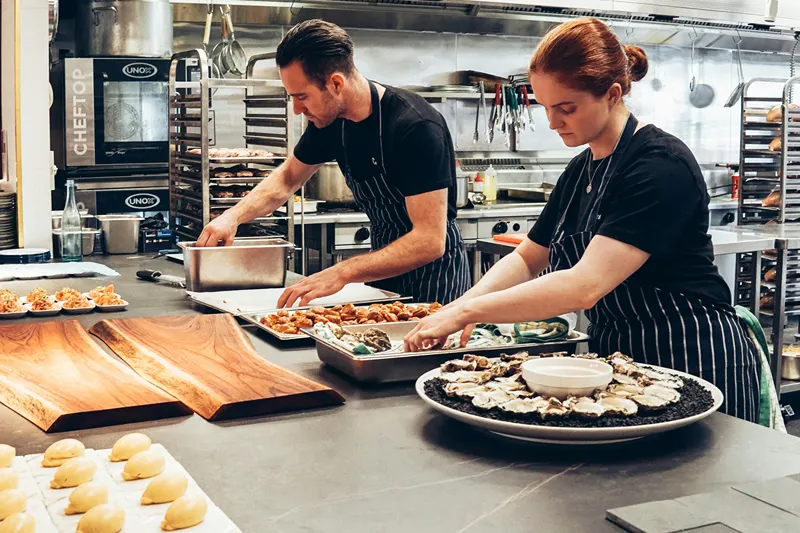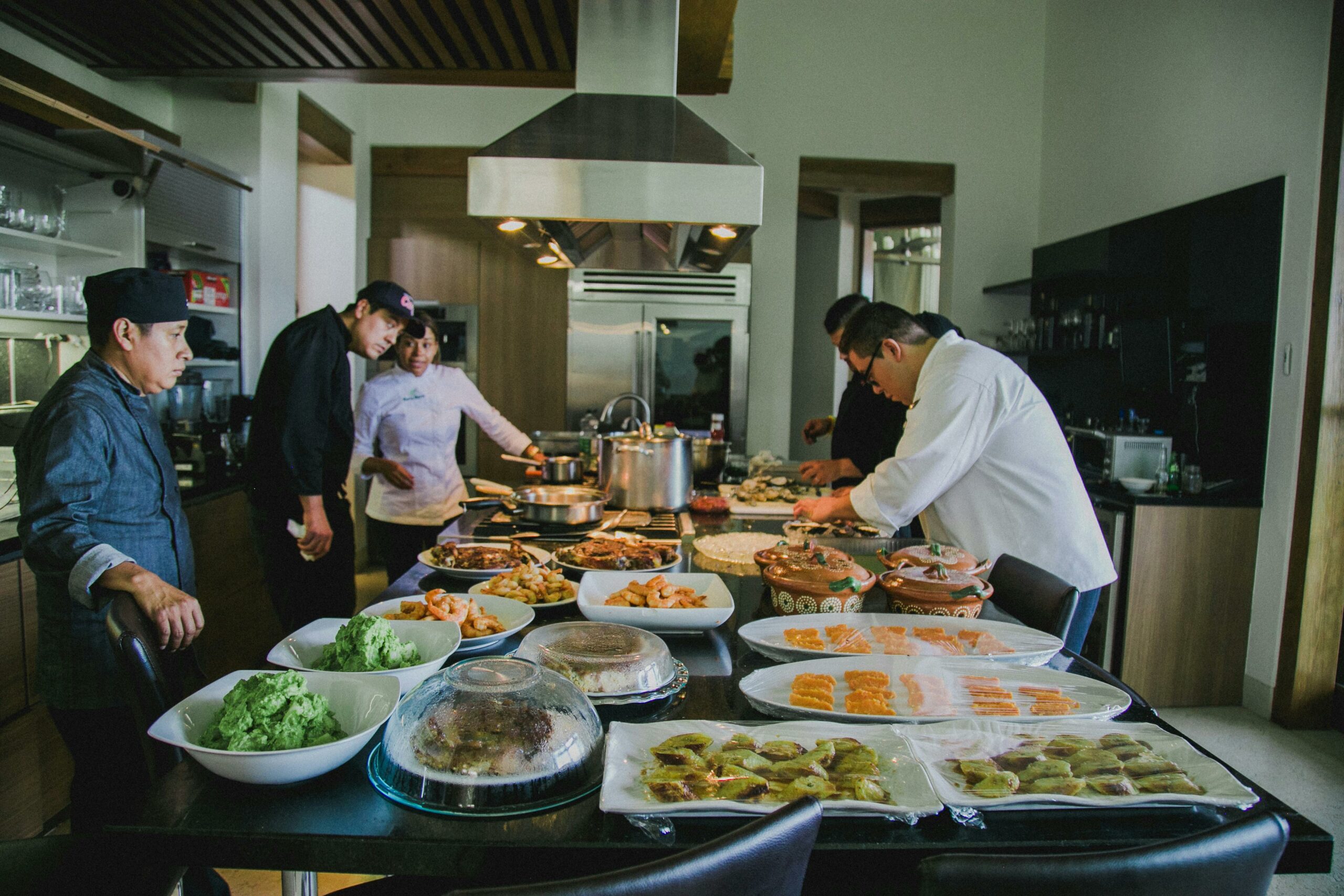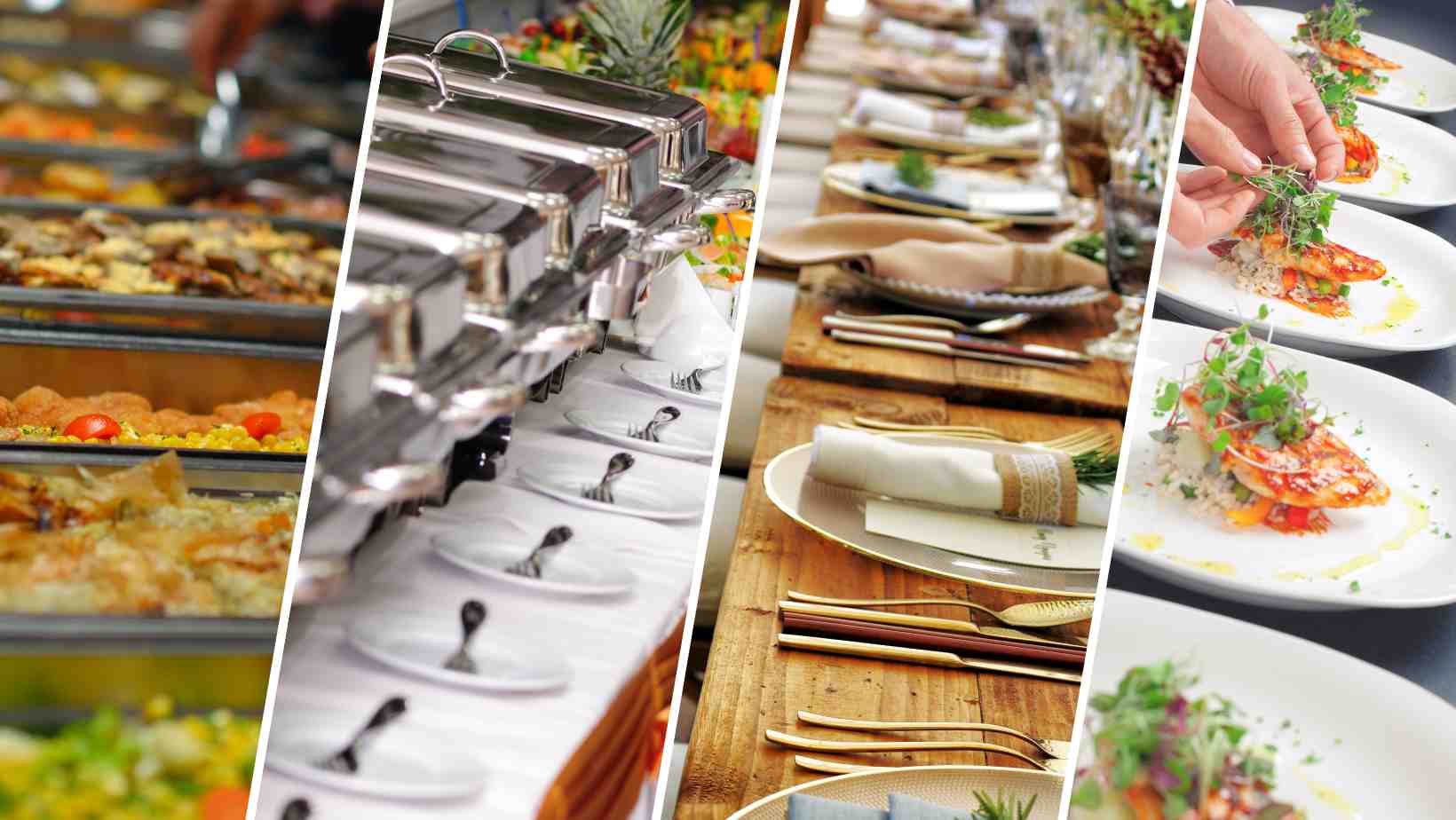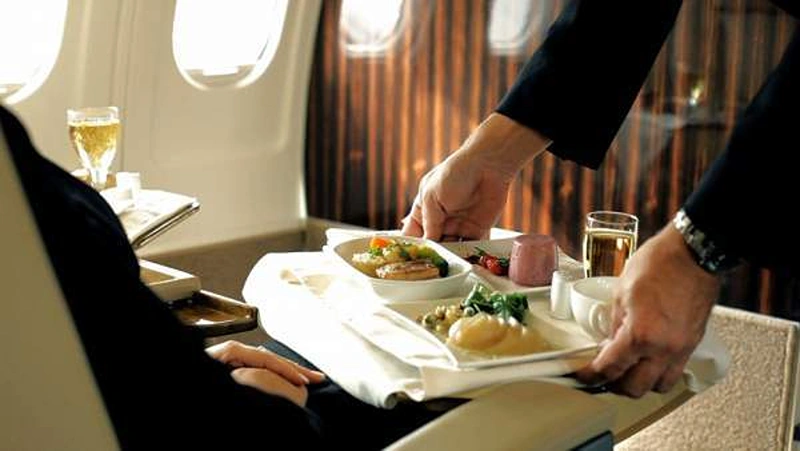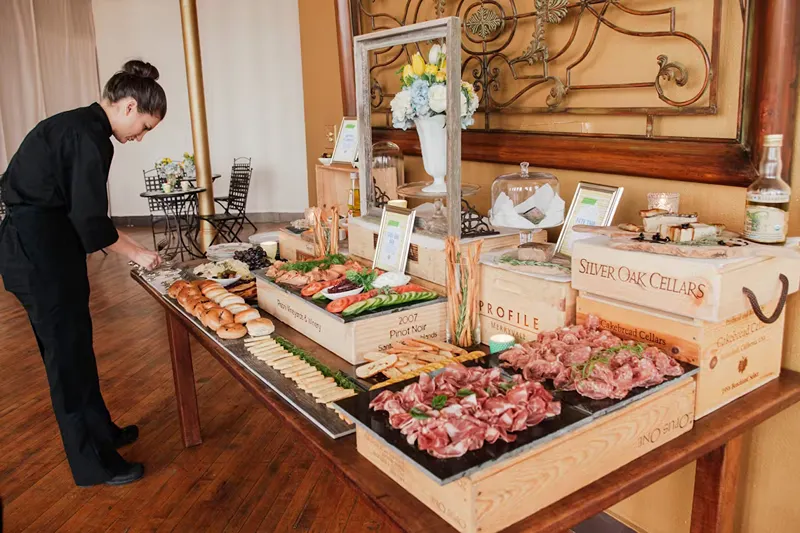How to Start a Catering Business in the US: Complete Guide
How to Start Catering Business in the USA in 7 Key Steps
Starting your catering business requires careful planning and execution. Here are the essential steps to starting a catering business that will guide you from conceptualizing your ideas to running a successful operation.
Define Your Catering Business Concept
The key to a thriving catering business is starting with a strong and well-defined concept. If you’re asking yourself, “How do I start a catering business?”, the first step is to identify your niche—whether it’s weddings, corporate events, social gatherings, or specialty cuisines like vegan or international dishes.
Selecting a specific niche not only helps you tailor your services but also sets you apart in a competitive market. For instance, if you specialize in sustainable, farm-to-table catering, you appeal to eco-conscious clients who would want to pay a premium for unique offerings.
Once you’ve chosen your niche, research your target market thoroughly to understand their preferences, budgets, and event types they typically host. For example, corporate clients may prioritize punctuality and professionalism, while wedding clients may focus on creativity and presentation. Use surveys, interviews, and online research to uncover key insights and ensure your services align with their expectations.
Finally, analyze your local competition to identify gaps and opportunities. Study what other caterers do well and where they fall short, such as limited customizable menus or dietary-friendly options. Addressing these gaps can help you craft a unique selling proposition (USP) that sets your business apart as the top choice in your market.
Develop a Solid Business Plan
After defining your concept and niche, you must be thinking, “What do I need to start a catering business?” The first step is to create a solid business plan, starting with an executive summary that outlines your mission, goals, and services. Follow this with a detailed company description, specifying your business type, target market, and the unique value you bring to the industry.
For instance, if you’re focusing on providing premium corporate lunches, emphasize how your service caters to professional environments with timely delivery and high-quality presentation. This section sets the tone for your entire business strategy and gives potential investors or partners a clear understanding of your vision.
The next step is conducting a detailed market analysis to evaluate industry trends and customer demand in your area. Research your competitors to find out gaps in their offerings, such as limited dietary options or inconsistent customer service. Use this data to define your edge and position your business effectively.
Additionally, explore the demographics and preferences of your potential customers. Are they budget-conscious families hosting birthday parties or upscale clients planning weddings? Understanding these details will help you align your menu, pricing, and marketing strategies to meet their needs.
Lastly, make sure your business plan outlines detailed financial projections and funding needs. Estimate your startup costs, including kitchen equipment, permits, initial marketing efforts, and insurance. Break down your expected revenue streams, whether from large-scale events, delivery services, or recurring contracts with local businesses. If you require funding, clearly outline how much to start a catering business you need, where it will be allocated, and your repayment strategy.
Obtain Necessary Permits and Licenses
Starting a catering business in the U.S. requires meeting several legal requirements to operate lawfully. If you’re wondering, “What licenses do I need to start a catering business?” the process begins with understanding how to register a catering business. Start by selecting a legal structure—such as a sole proprietorship, LLC, or corporation—based on your goals, tax preferences, and liability needs. Then, file the required paperwork with your state’s business office or the Secretary of State.
Next, determine what permits are needed for a catering business, as these vary depending on your location and services. A food service permit is essential to comply with health department regulations and ensure your kitchen meets hygiene standards. If you’re wondering how to start a catering business from home, check your state’s cottage food laws to see if they allow home-based food preparation.

Businesses serving alcohol require a liquor license, which involves an extensive application process and approval from local authorities. Regular inspections may also be required to keep your operation compliant with food safety laws, whether you’re using a commercial kitchen or exploring how to start a home catering business.
Don’t overlook the importance of insurance, as it protects your business from unexpected risks. Liability insurance for catering business operations is essential, covering accidents, food-related illnesses, and potential property damage during events. If staff hiring is part of your plan, workers’ compensation insurance may be mandatory.
Set Up Your Catering Operations
Understanding what is needed to start a catering business begins with organizing your kitchen and equipment. If you’re considering how to start catering business from home, check your state’s cottage food laws to ensure home-based operations are allowed and meet health department standards.
For those aiming to learn how to start a small catering business, renting a commercial or shared kitchen can be a cost-effective option. These facilities offer professional-grade equipment like ovens, refrigerators, and insulated carriers to maintain food quality, ensuring your services are consistent and reliable.
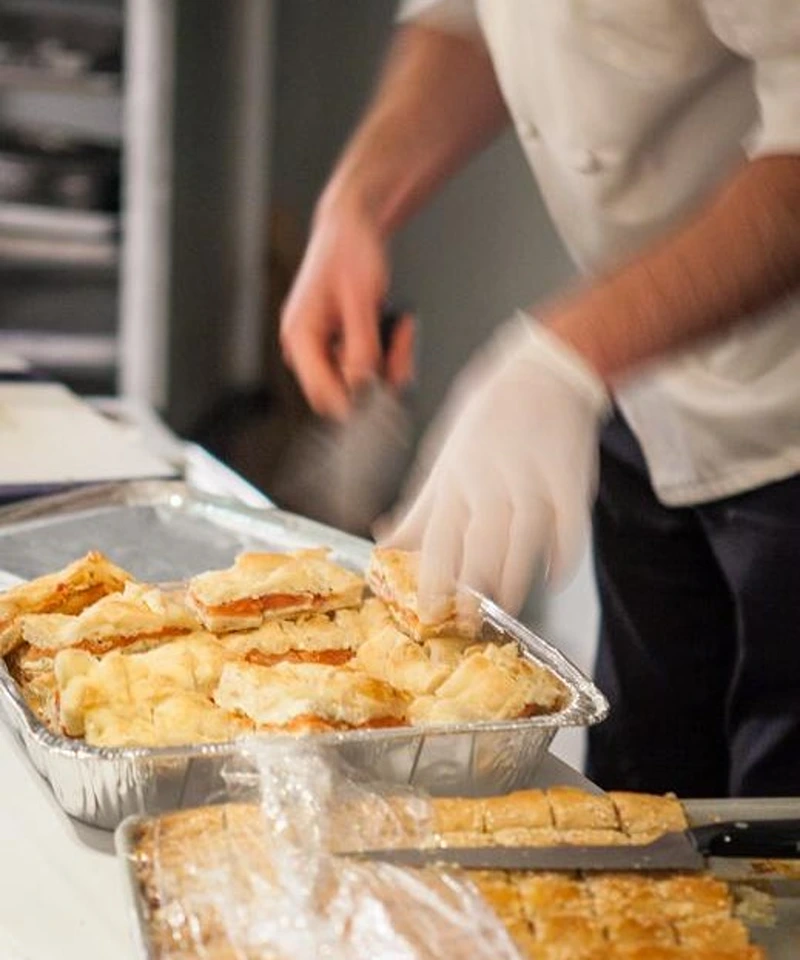
.Once your kitchen setup is ready, focus on building strong supplier relationships to source fresh ingredients consistently and at competitive prices. A flexible menu is equally important, allowing you to cater to diverse dietary needs like vegan or gluten-free options, which broaden your client base. To streamline operations, consider using catering management software for tracking orders, managing schedules, and optimizing logistics.
Hire and Train Staff
With your operations established, the next step in how to start up a catering business is assembling a team that can bring your vision to life. Depending on the scale of your business, you might start with a chef and a few servers for smaller events or expand to include kitchen assistants, delivery drivers, and event coordinators for larger operations.
Recruiting staff with the right balance of technical expertise, like food preparation and service skills, and soft skills, such as communication and problem-solving, is essential. Clearly defining roles not only ensures that everyone knows their responsibilities but also minimizes confusion during events, whether it’s setting up a venue or managing deliveries.
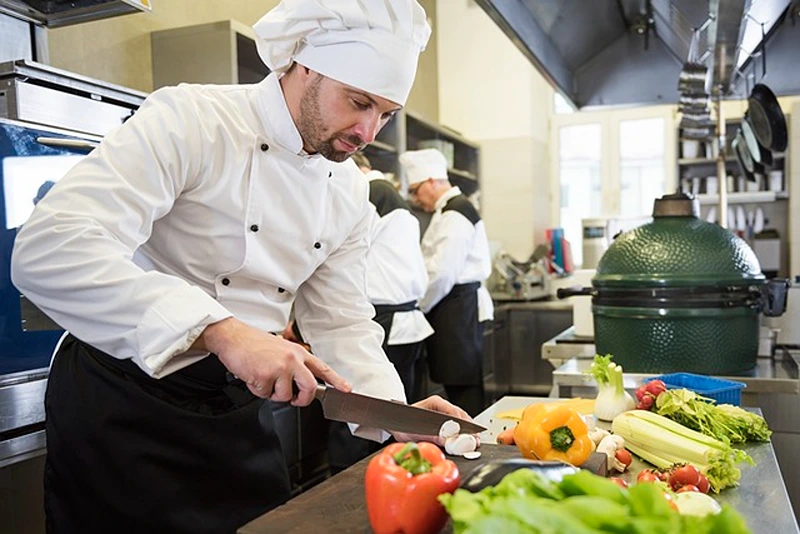
Once your team is in place, training becomes the cornerstone of maintaining quality and professionalism—key factors in how do you start a catering business successfully. Begin with foundational training on food safety, customer service, and time management to prepare them for the fast-paced nature of catering. Structured programs help standardize performance, while regular team meetings encourage collaboration and continuous improvement.
Develop a Marketing Strategy
Once your team is ready, the next step in how to start a food catering business is creating a strong marketing strategy to attract clients and establish your presence. Start by crafting a brand identity with a professional logo, tagline, and website showcasing your menu, services, and client testimonials. Use social media like Instagram to share event photos and partner with local venues and planners to expand your reach.
If you’re wondering how to open a catering business effectively, starting with targeted ads on Google and social media can attract clients actively searching for catering services. Positive reviews on Yelp or Google boost credibility, while hosting or sponsoring local events provides direct exposure.
Whether you're hosting a special celebration dinner, looking for a chef during your holiday or weekly meal prep, we will match you to the perfect chefs.
Start hereManage Finances and Pricing
The next step in how to start catering business is managing finances and pricing effectively. Begin by calculating startup costs, including equipment, permits, ingredients, and wages. If you’re asking, “How much does it cost to start a catering business?”, costs vary based on scale—home-based setups are often less expensive than renting commercial spaces. Use accounting tools to track expenses and create a budget that ensures profitability.
For pricing, research competitors and factor in the unique value you offer, such as custom menus or premium services. Design tiered packages to attract various budgets while ensuring profitability. Regularly review pricing to adapt to market trends and maintain financial stability.
Set Your US Catering Business Up for Success!
Now that your catering business is all set up, your first big question might be: how to get clients for catering business? Finding clients in the early stages can be challenging, especially in an industry where reputation and trust are key. People may hesitate to book a new caterer for important events like weddings or corporate gatherings, and with a market full of established players, standing out is no small feat. While word-of-mouth is powerful, it takes time to build a network of satisfied clients. And large-scale marketing—like digital ads or partnerships with local influencers—can be costly, especially when competing against caterers with bigger budgets.
Why not leverage an established and thriving platform like yhangry?
Yhangry connects you to clients actively searching for catering services, allowing you to create a profile that showcases your unique menu and expertise. As clients leave positive reviews, your reputation grows, attracting more business and building trust with new customers.
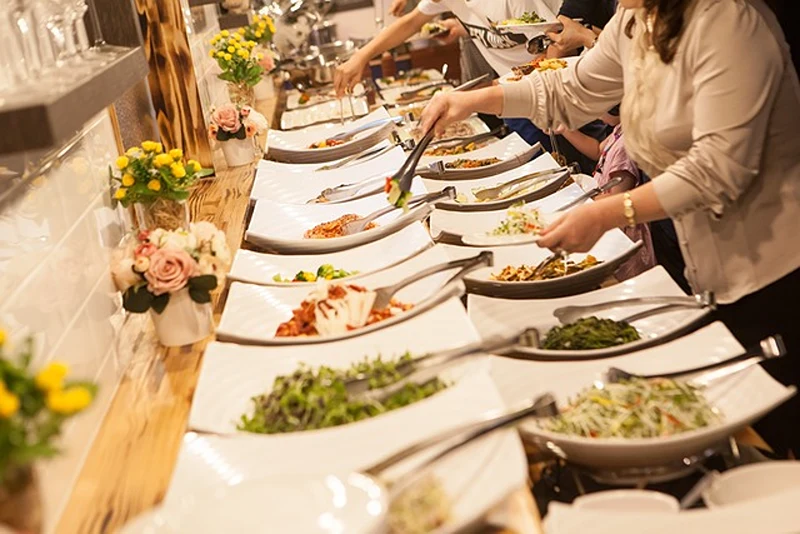
Yhangry’s streamlined booking process also simplifies payments and communication, making client interactions seamless. Plus, with marketing support, including online ads and social media exposure, you gain visibility without the heavy marketing costs, helping your business grow faster.
- What makes a catering business successful?
-
A successful catering business depends on delivering exceptional food quality, personalized service, and seamless event execution while maintaining strict compliance with health regulations. Effective marketing, a strong brand presence, and the ability to adapt to client preferences and market trends are equally important for long-term growth.
- How to start a catering business from home with no money?
-
If you’re wondering how to start a catering business at home with no money, leverage your existing kitchen under cottage food laws, which allow home-based food preparation in many states. Focus on small-scale events, promote your services through social media and free platforms like yhangry, and use pre-orders or deposits to cover initial ingredient costs, gradually scaling as you build trust and revenue.
- How to start a BBQ catering business?
-
Choose your niche (e.g., private events or festivals) and secure permits like food service and mobile vendor licenses if cooking on-site. Invest in essential equipment like smokers and grills, and craft a diverse BBQ menu that appeals to various tastes. Promote your business through social media, local partnerships, and exceptional service to build a strong reputation and client base.
- How to get more catering business?
-
Use free social media sites and private catering platforms like Yhangry to showcase your work, connect with clients, and gain visibility without high marketing costs. Encourage positive online reviews and leverage word-of-mouth referrals to quickly build trust and expand your network.
